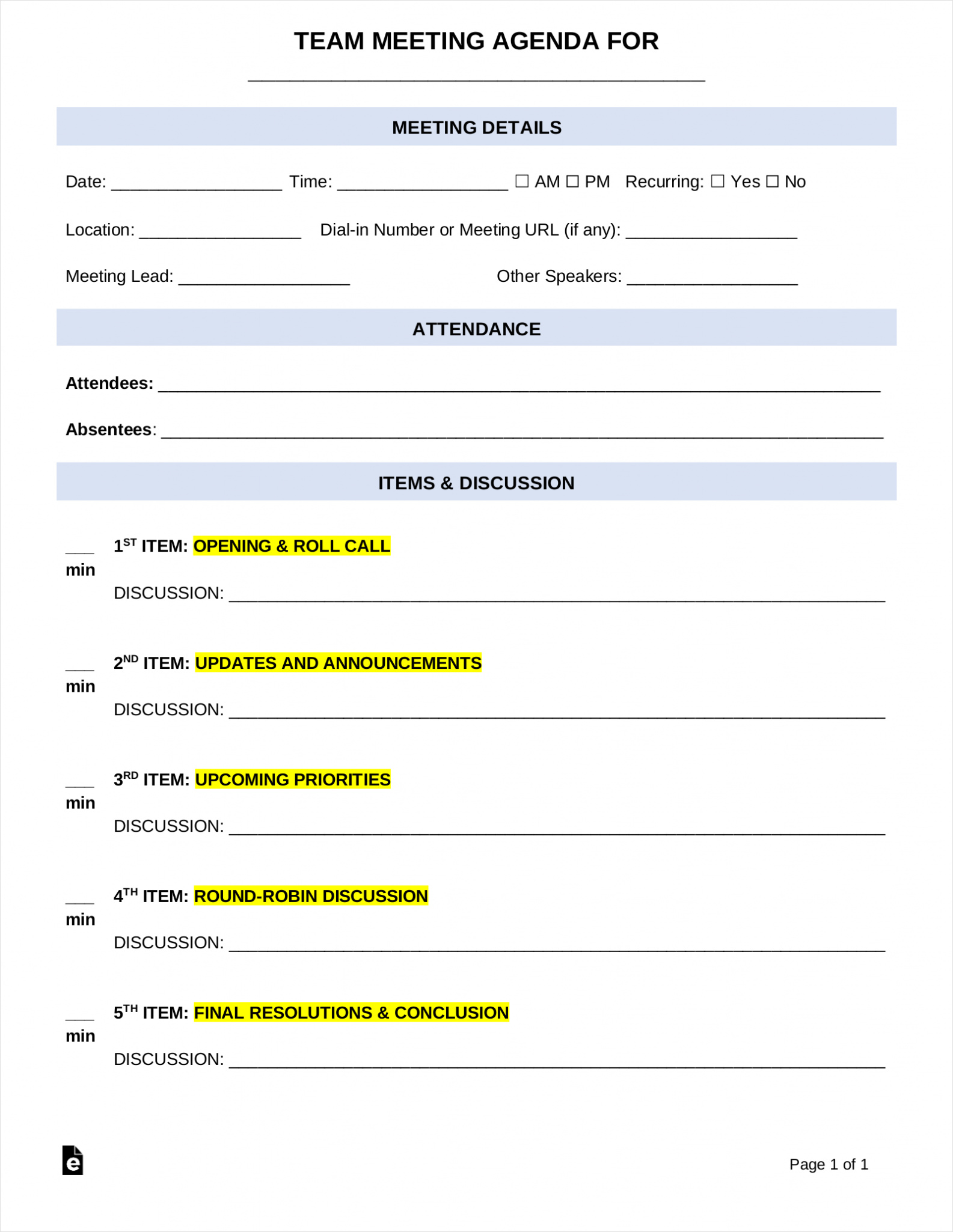Why is a Weekly Team Meeting Agenda Important?
A weekly team meeting agenda is a crucial tool for ensuring that your team meetings are productive, efficient, and purposeful. Without a well-planned agenda, meetings can easily become disorganized, time-consuming, and unproductive. By setting a clear agenda, you provide structure and direction for the meeting, ensuring that all team members are aligned and focused on the same goals.
The agenda serves as a roadmap for the meeting, outlining the topics to be discussed, the order in which they will be addressed, and the time allotted for each item. It helps to keep the meeting on track, prevent tangents, and ensure that all necessary topics are covered within the designated time frame.
What Should a Weekly Team Meeting Agenda Include?
Creating a comprehensive weekly team meeting agenda involves careful planning and consideration. Here are the key elements that should be included:
1. Introduction and Welcome: Begin the meeting by welcoming all team members and setting a positive tone for the discussion.
2. Review of Previous Meeting Minutes: Take a few minutes to review the minutes from the previous meeting, highlighting any action items or follow-ups.
3. Team Updates: Provide an opportunity for team members to share updates on their projects, tasks, and any challenges they may be facing.
4. Discussion of Key Topics: Identify the main topics to be discussed during the meeting and allocate specific time slots for each item.
5. Action Items and Assignments: Clearly define the action items that arise from the discussion and assign responsibilities to team members.
6. Open Forum and Q&A: Allow time for team members to ask questions, seek clarification, and address any concerns or suggestions.
7. Review of Next Steps and Closing: Summarize the decisions made during the meeting, outline the next steps, and conclude the meeting on a positive note.
How to Create an Effective Weekly Team Meeting Agenda
To ensure that your weekly team meeting agenda is effective and productive, follow these steps:
1. Determine the Purpose of the Meeting
Before creating the agenda, clearly define the purpose of the meeting. Is it for project updates, problem-solving, brainstorming, or decision-making? Understanding the goal of the meeting will help you determine the topics to include and the desired outcomes.
2. Identify the Key Topics to Discuss
Once you have defined the purpose, identify the key topics that need to be addressed. These could be updates on ongoing projects, upcoming deadlines, challenges, or any other relevant issues. Prioritize the topics based on their importance and allocate appropriate time for each item.
3. Set Clear Objectives for Each Topic
For each topic on the agenda, set clear objectives. What do you want to accomplish or decide during the discussion? Clearly define the desired outcomes so that everyone is on the same page and can contribute effectively.
4. Include Relevant Supporting Materials
If any supporting materials such as reports, data, or presentations are relevant to the topics being discussed, include them in the agenda or provide links for easy access. This will help team members come prepared and contribute meaningfully to the discussion.
5. Allocate Time Slots for Each Item
Assign specific time slots for each item on the agenda to ensure that the meeting stays on track and doesn’t overrun. Be realistic in estimating the time needed for each topic and allow some buffer time for unexpected discussions or questions.
6. Communicate the Agenda in Advance
Send the agenda to all team members in advance, preferably a day or two before the meeting. This gives them time to review the topics, prepare any necessary materials, and come prepared with any questions or suggestions. It also demonstrates your commitment to an organized and efficient meeting.
7. Facilitate Active Participation
During the meeting, encourage active participation from all team members. Make sure everyone has the opportunity to contribute, ask questions, and share their perspectives. As the facilitator, guide the discussion and ensure that it remains focused on the agenda items.
8. Follow Up on Action Items
After the meeting, follow up on the action items and assignments that were decided upon. Send a summary email outlining the decisions made, the responsibilities assigned, and the next steps. This helps to maintain accountability and ensures that progress is being made.
Sample Weekly Team Meeting Agenda
Here’s an example of a sample weekly team meeting agenda:
- 1. Introduction and Welcome (5 minutes)
- 2. Review of Previous Meeting Minutes (10 minutes)
- 3. Team Updates (15 minutes)
- 4. Discussion of Key Topics
- a. Project A Update (20 minutes)
- b. New Marketing Strategy (30 minutes)
- c. Budget Planning for Q2 (15 minutes)
- 5. Action Items and Assignments (10 minutes)
- 6. Open Forum and Q&A (15 minutes)
- 7. Review of Next Steps and Closing (5 minutes)
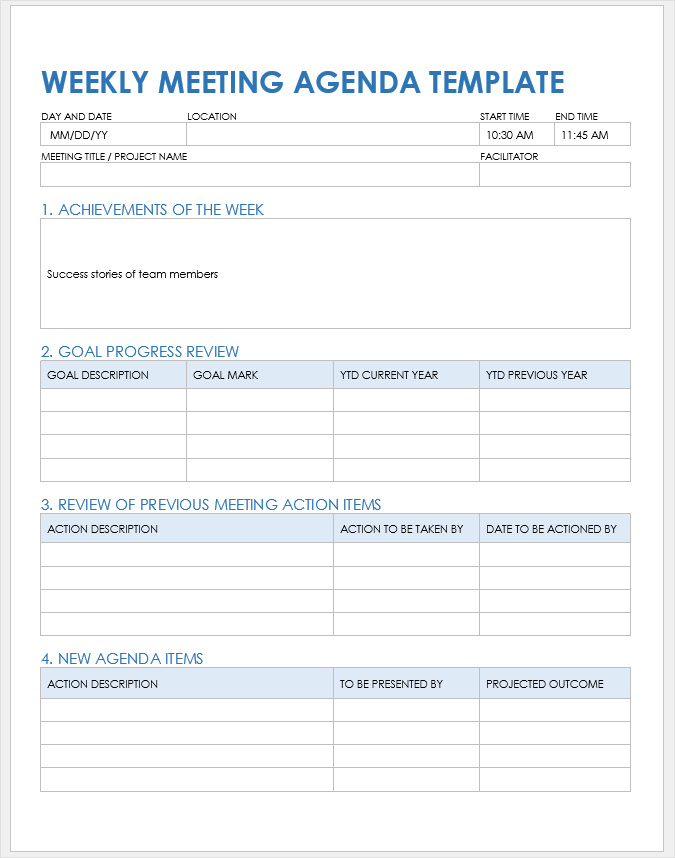
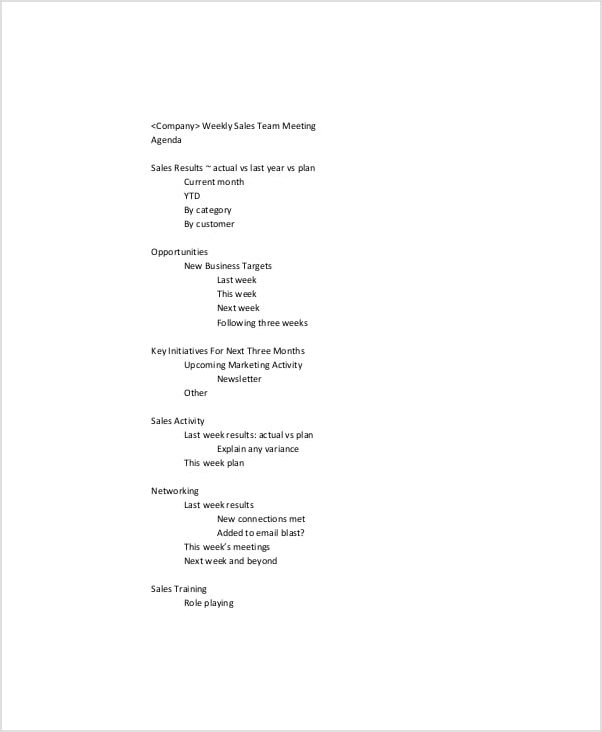
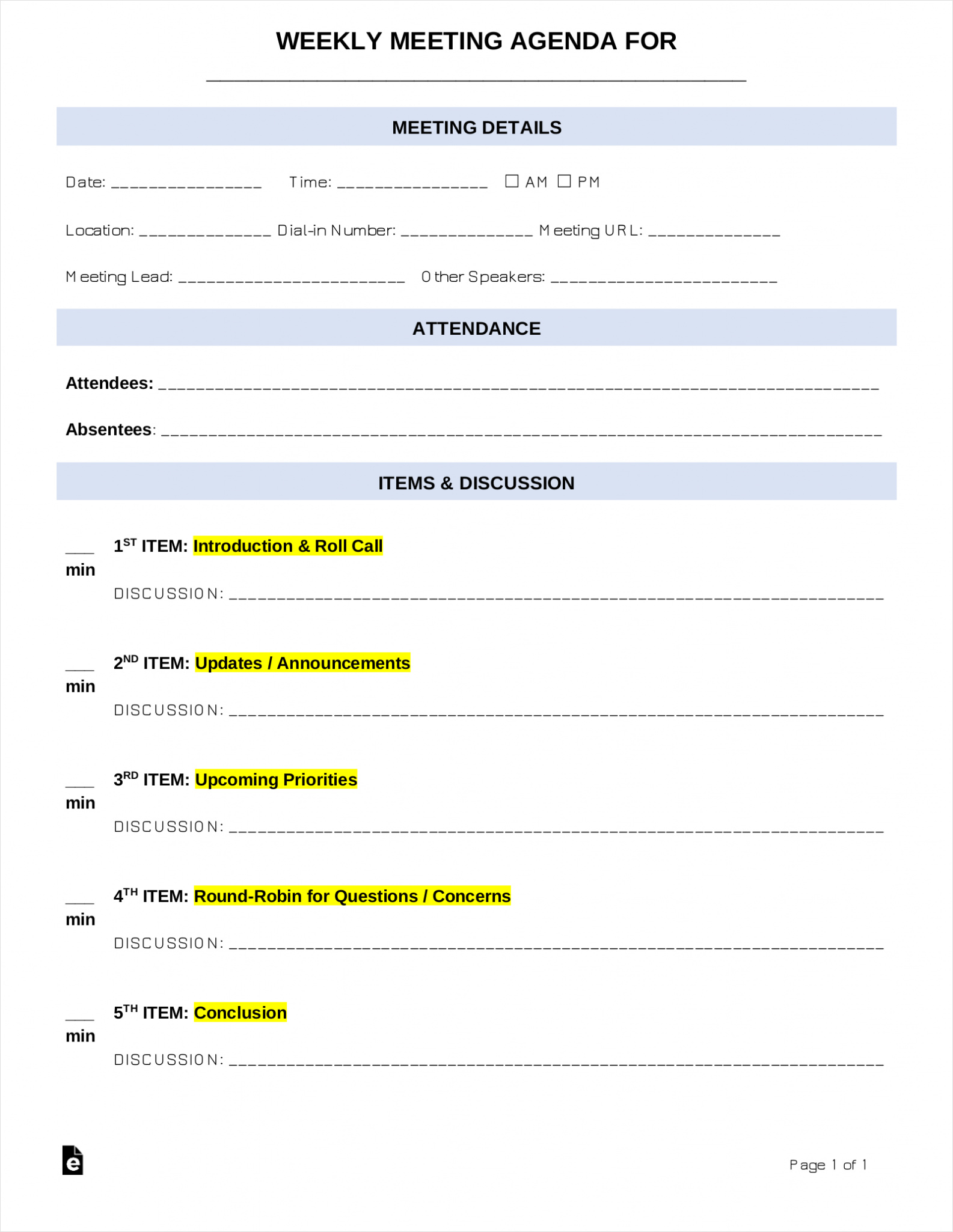
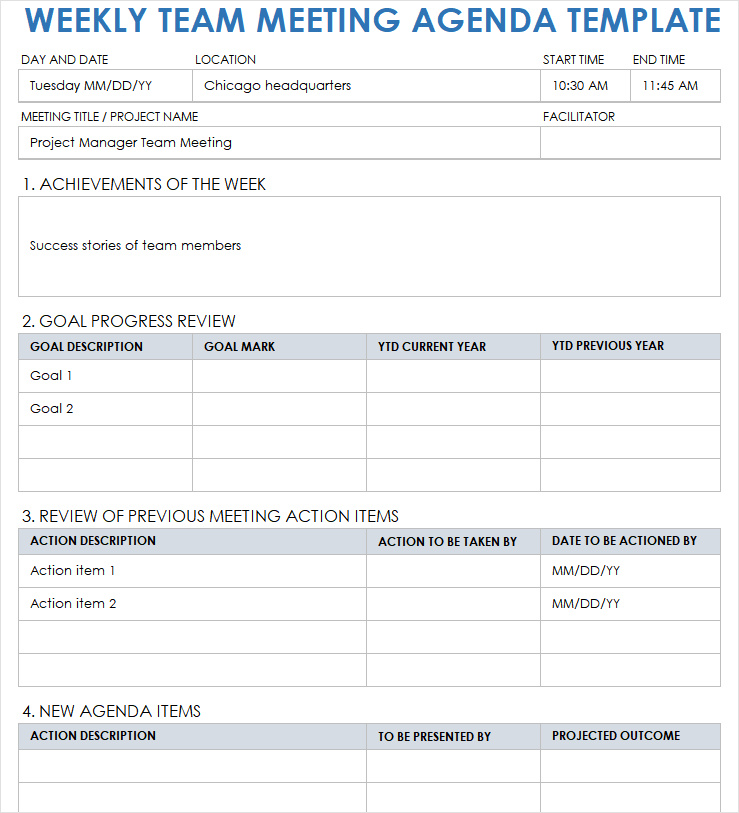
Conclusion
A well-planned and executed weekly team meeting agenda is essential for maximizing productivity and ensuring that everyone is aligned and focused on the team’s goals. By following the steps outlined in this guide, you can create an effective agenda that promotes meaningful discussions, fosters collaboration, and drives results. Remember to communicate the agenda in advance, encourage active participation, and follow up on action items to maintain accountability. With a structured agenda in place, your team meetings will become more productive and efficient, leading to greater success for your team as a whole.
Weekly Team Meeting Agenda Template Excel – Download
